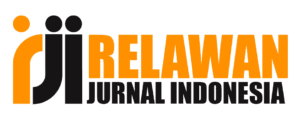Smart Society Development through the Initiation of New Library Infrastructure Development in Gowa Regency
Abstract
This research discusses the Gowa Regency Government's initiative to build a new library infrastructure as a step towards developing a smart society. In this ever-evolving information age, libraries are places to read books and knowledge centers that support digital literacy and intellectual growth. Data was collected through interviews, observation, and documentation. The analytical tool that is maximized is Nvivo 12 Plus. The research results show that constructing a new library infrastructure has increased people's access to digital knowledge and literacy. Inclusive design has enabled the participation of all walks of life, while digital library services have expanded the range of educational resources. Government coordination has also supported efficiency in project implementation. However, low digital literacy and data privacy protection require further attention. This research provides an in-depth look at how library infrastructure development can contribute to developing a smart society, with particular attention to the still-needed improvements.
References
Aabø, S. (2005). The role and value of public libraries in the age of digital technologies. Journal of Librarianship and Information Science, 37(4), 205–211. https://doi.org/10.1177/0961000605057855
Alharbi, A. S., Halikias, G., Rajarajan, M., & Yamin, M. (2021). A review of effectiveness of Saudi E-government data security management. International Journal of Information Technology, 13(2), 573–579. https://doi.org/10.1007/s41870-021-00611-3
Alrubaiq, A. (2021). Developing a Cybersecurity Framework for e-Government Project in the Kingdom of Saudi Arabia. Journal of Cybersecurity and Privacy, 1(2), 302–318. https://doi.org/https://doi.org/10.3390/jcp1020017
Alzahrani, A. I., Mahmud, I., Ramayah, T., Alfarraj, O., & Alalwan, N. (2019). Modelling digital library success using the DeLone and McLean information system success model. Journal of Librarianship and Information Science, 51(2), 291–306. https://doi.org/10.1177/0961000617726123
Baharuddin, T. (2020). Keterbukaan Informasi Publik: Studi Pada Keberhasilan Pemerintah Daerah Kabupaten Luwu Utara 2019. Journal of Governance and Local Politics, 2(2), 151–163. https://doi.org/10.47650/jglp.v2i2.133
Baharuddin, T., Jubba, H., Nurmandi, A., & Qodir, Z. (2022). Online Social Trust in Government: Analysis of Government Policy During the Covid-19 Pandemic. Proceedings of the First International Conference on Democracy and Social Transformation, ICON-DEMOST 2021. https://doi.org/10.4108/eai.15-9-2021.2315575
Baharuddin, T., Qodir, Z., & Loilatu, M. J. (2022). Government Website Performance during Covid-19 : Comparative Study Yogyakarta and South Sulawesi , Indonesia. Journal of Governance and Public Policy, 9(2), 109–123. https://doi.org/10.18196/jgpp.v9i2.11474
Baharuddin, T., Sairin, S., Jubba, H., Qodir, Z., Nurmandi, A., & Hidayati, M. (2021). Social Capital and Social Trust : The State ’ s Response in Facing the Spread of COVID-19 in Indonesia. Sociology and Technoscience, 11(2), 23–47. https://doi.org/10.24197/st.2.2021.23-47
Baharuddin, T., Sairin, S., Qodir, Z., Jubba, H., & Nurmandi, A. (2022). Partisipasi dan kepercayaan sosial daring: kebijakan vaksinasi COVID-19 di Indonesia. Jurnal Studi Komunikasi (Indonesian Journal of Communications Studies), 6(1), 277–290. https://doi.org/10.25139/jsk.v6i1.3680
Bangani, S., & Dube, L. (2023). Institutional commitment to community engagement in South African academic libraries. The Journal of Academic Librarianship, 49(2), 102679. https://doi.org/https://doi.org/10.1016/j.acalib.2023.102679
Barfi, K. A., Imoro, O., Arkorful, V., & Armah, J. K. (2023). Acceptance of e-library and support services for distance education students: Modelling their initial perspectives. Information Development, 1–13. https://doi.org/10.1177/02666669221150426
Baro, E. E., Obaro, O. G., & Aduba, E. D. (2019). An assessment of digital literacy skills and knowledge-based competencies among librarians working in university libraries in Africa. Digital Library Perspectives, 35(3–4), 172–192. https://doi.org/10.1108/DLP-04-2019-0013
Bi, S., Wang, C., Zhang, J., Huang, W., Wu, B., Gong, Y., & Ni, W. (2022). A Survey on Artificial Intelligence Aided Internet-of-Things Technologies in Emerging Smart Libraries. Sensors, 22(8), 1–20. https://doi.org/10.3390/s22082991
Bianchin, M., & Heylighen, A. (2017). Fair by design. Addressing the paradox of inclusive design approaches. Design Journal, 20(sup1), S3162–S3170. https://doi.org/10.1080/14606925.2017.1352822
Cahyadi, A., Hendryadi, Widyastuti, S., & Suryani. (2022). COVID-19, emergency remote teaching evaluation: the case of Indonesia. Education and Information Technologies, 27(2), 2165–2179. https://doi.org/10.1007/s10639-021-10680-3
Chen, X., Tang, X., & Xu, X. (2023). Digital technology-driven smart society governance mechanism and practice exploration. Frontiers of Engineering Management, 10(2), 319–338. https://doi.org/10.1007/s42524-022-0200-x
Cox, A. M., Pinfield, S., & Rutter, S. (2019). The intelligent library: Thought leaders’ views on the likely impact of artificial intelligence on academic libraries. Library Hi Tech, 37(3), 418–435. https://doi.org/10.1108/lht-08-2018-0105
De Paor, S., & Heravi, B. (2020). Information literacy and fake news: How the field of librarianship can help combat the epidemic of fake news. Journal of Academic Librarianship, 46(5), 102218. https://doi.org/10.1016/j.acalib.2020.102218
Foresti, R., Rossi, S., Magnani, M., Guarino Lo Bianco, C., & Delmonte, N. (2020). Smart Society and Artificial Intelligence: Big Data Scheduling and the Global Standard Method Applied to Smart Maintenance. Engineering, 6(7), 835–846. https://doi.org/10.1016/j.eng.2019.11.014
Gul, M. J., Subramanian, B., Paul, A., & Kim, J. (2021). Blockchain for public health care in smart society. Microprocessors and Microsystems, 80, 103524. https://doi.org/10.1016/j.micpro.2020.103524
Gul, S., & Bano, S. (2019). Smart libraries: an emerging and innovative technological habitat of 21st century. Electronic Library, 37(5), 764–783. https://doi.org/10.1108/EL-02-2019-0052
Hartman-Caverly, S., & Chisholm, A. (2020). Privacy literacy instruction practices in academic libraries: Past, present, and possibilities. IFLA Journal, 46(4), 305–327. https://doi.org/10.1177/0340035220956804
Holroyd, C. (2022). Technological innovation and building a ‘super smart’ society: Japan’s vision of society 5.0. Journal of Asian Public Policy, 15(1), 18–31. https://doi.org/10.1080/17516234.2020.1749340
Ibrahim, A. H. H., Baharuddin, T., & Wance, M. (2023). Developing a Forest City in a New Capital City: A Thematic Analysis of the Indonesian Government’s Plans. Jurnal Bina Praja, 15(1), 1–13. https://doi.org/https://doi.org/ 10.21787/jbp.15.2023.1-13
Jaeger, P. T., & Bertot, J. C. (2011). Responsibility rolls down: Public libraries and the social and policy obligations of ensuring access to e-government and government information. Public Library Quarterly, 30(2), 91–116. https://doi.org/10.1080/01616846.2011.575699
Jaeger, P. T., Bertot, J. C., Thompson, K. M., Katz, S. M., & DeCoster, E. J. (2012). Digital divides, digital literacy, digital inclusion, and public libraries. Public Library Quarterly, 31(1), 1–20.
Leorke, D., Wyatt, D., & McQuire, S. (2018). “More than just a library”: Public libraries in the 'smart city’. City, Culture and Society, 15, 37–44. https://doi.org/10.1016/j.ccs.2018.05.002
Li, S., Jiao, F., Zhang, Y., & Xu, X. (2019). Problems and Changes in Digital Libraries in the Age of Big Data From the Perspective of User Services. Journal of Academic Librarianship, 45(1), 22–30. https://doi.org/10.1016/j.acalib.2018.11.012
Lynch, R., Young, J. C., Jowaisas, C., Boakye-Achampong, S., & Sam, J. (2022). African Libraries in Development: Perceptions and Possibilities. International Information and Library Review, 53(4), 277–290. https://doi.org/10.1080/10572317.2020.1840002
Mehta, D., & Wang, X. (2020). COVID-19 and digital library services – a case study of a university library. Digital Library Perspectives, 36(4), 351–363. https://doi.org/10.1108/DLP-05-2020-0030
Moyo, L. M. (2004). Electronic libraries and the emergence of new service paradigms. Electronic Library, 22(3), 220–230. https://doi.org/10.1108/02640470410541615
Muhammed, T., Mehmood, R., Albeshri, A., & Alzahrani, A. (2020). Hcdsr: A hierarchical clustered fault tolerant routing technique for iot-based smart societies. EAI/Springer Innovations in Communication and Computing, 609–628. https://doi.org/10.1007/978-3-030-13705-2_25
Nahak, B., & Padhi, S. (2019). The Role of Smart Library and Smart Librarian for E-Library Services. 12th International CALIBER-2019, 1–10. http://ir.inflibnet.ac.in/handle/1944/2338
Okyere-Kwakye, E., & Md Nor, K. (2020). Examining the intentions of a Ghanaian technical university students to use e-library. Digital Library Perspectives, 38(1), 69–87. https://doi.org/10.1108/DLP-05-2020-0034
Ozeer, A., Sungkur, Y., & Nagowah, S. D. (2019). Turning a Traditional Library into a Smart Library. International Conference on Computational Intelligence and Knowledge Economy (ICCIKE), 352–358.
Patrick, V. M., & Hollenbeck, C. R. (2021). Designing for All: Consumer Response to Inclusive Design. Journal of Consumer Psychology, 31(2), 360–381. https://doi.org/10.1002/jcpy.1225
Pemerintah Gowa. (2022). Smart City Kabupaten Gowa. Gowakab.Go.Id. https://smartcity.gowakab.go.id/
Rafi, M., JianMing, Z., & Ahmad, K. (2019). Technology integration for students’ information and digital literacy education in academic libraries. Information Discovery and Delivery, 47(4), 203–217. https://doi.org/10.1108/IDD-07-2019-0049
Rahmanti, A. R., Ningrum, D. N. A., Lazuardi, L., Yang, H. C., & Li, Y. C. (2021). Social Media Data Analytics for Outbreak Risk Communication: Public Attention on the “New Normal” During the COVID-19 Pandemic in Indonesia. Computer Methods and Programs in Biomedicine, 205, 106083. https://doi.org/10.1016/j.cmpb.2021.106083
Redaksi Radsel. (2022, November 17). Momen Hari Jadi Gowa, Adnan Persembahkan Perpustakaan Modern Senilai Rp12 M. Fajar.Co.Id. https://bit.ly/42o0pR4
Rifaid, Abdurrahman, Baharuddin, T., & Kusuma, B. M. A. (2023). Smart City Development in the New Capital City : Indonesian Government Plans. Journal of Contemporary Governance and Public Policy, 4(2), 115–130. https://doi.org/https://doi.org/10.46507/jcgpp.v4i2.141
Thakur, R., Borkar, P. S., & Agarwal, M. (2022). Smart Society 5.0 for Social and Technological Sustainability. In Decision Analytics for Sustainable Development in Smart Society 5.0 (pp. 299–319). Springer Singapore. https://doi.org/10.1007/978-981-19-1689-2_17
Verma, S. (2022). Sentiment analysis of public services for smart society: Literature review and future research directions. In Government Information Quarterly (Vol. 39, Issue 3, p. 101708). https://doi.org/10.1016/j.giq.2022.101708
Yang, L., Elisa, N., & Eliot, N. (2019). Privacy and security aspects of E-government in smart cities. Smart Cities Cybersecurity and Privacy, 89–102. https://doi.org/10.1016/B978-0-12-815032-0.00007-X
Zhou, J., & Kondo, M. (2021). A Lightweight Interactive Graph Processing Library for Edge Computing in Smart Society. In Proceedings - 2021 9th International Symposium on Computing and Networking Workshops, CANDARW 2021 (pp. 62–68). https://doi.org/10.1109/CANDARW53999.2021.00017
Copyright (c) 2023 Journal of Governance and Local Politics (JGLP)

This work is licensed under a Creative Commons Attribution-NonCommercial-NoDerivatives 4.0 International License.










